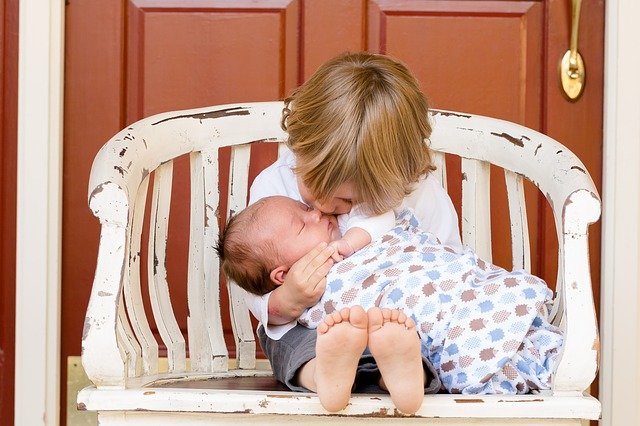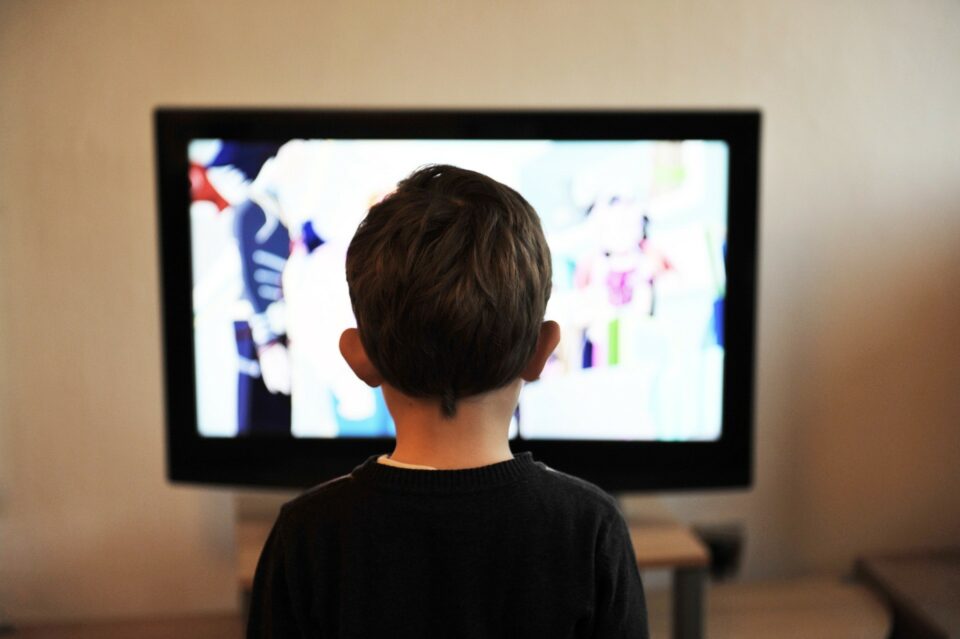Your little bundle of joy is a delightful and beautiful creature and you love watching them grow and develop with every passing day.
For sure, babies change very quickly in the first few weeks, and over the coming months you’ll notice there’s even more to come, as big milestones start to be ticked off.
Most parents are in a rush for the child to say their first words, take their first steps, and of course, start smiling those adorable gummy grins. So, when can you expect all of this to happen?
All Babies Develop at Different Rates
Before we get into specifics, it’s important to remember that every baby is different. Sure, there are general guidelines that we look towards for guidance, but not every baby hits those exactly. Some babies develop a little earlier, whilst some slightly later.
Comparing your baby against a friend’s baby isn’t going to work. By doing so, you’ll cause yourself a world of anxiety that isn’t necessary. Of course, if you’re concerned that your baby isn’t showing progress after a while, speak to your health visitor for advice, but do not worry if your baby doesn’t hit the general guidelines we give below exactly, or even by a short distance on either side.
Babies are as individual as adults are, and they’ll get there when they’re ready!
When do Babies Start to Smile?
You might find that your baby smiles a little very early on, but most of the time this is gas causing them to gurn! However, their social smiles, e.g. when they smile when you do or when they see you walking into a room, generally start around the second month, usually in the first or second week of that month.
There are a few ways you can encourage your baby to start giving you those gorgeous grins, but it may take a few attempts as they learn what you’re trying to get them to do and to notice your cues. Also, remember that babies have bad moods just as you do, so maybe one day they won’t really feel like smiling very much!
A few ways to help your baby to start smiling socially include:
- Hold your face close to your baby when trying to get them to smile – they can only really see a short distance at this point so they need to see your face clearly
- Smile at your baby and make cooing, happy noises
- If they smile, make sure you smile even wider or show that you are happy with what they’ve done, e.g. kiss their face, laugh a little – this will reinforce the cue you’re trying to show to them
Don’t try to make your baby smile when they’re tired or hungry as they’re simply not going to be up for it! Instead, choose a time when they’ve been fed, they’re well rested and they’ve been changed. They’ll be in a better frame of mind to take on board what you’re trying to get them to do.
It’s important to remember that smiling isn’t just a cute thing, it’s also a great step towards your baby’s brain development. The fact they can smile at you means that their vision has improved, they recognise you and they’re taking on board cues.
When do Babies Start to Walk?
The learning to walk process is a long one and is likely to involve a lot of bumps and minor falls! It’s important during this stage of your baby’s development to make sure that your house is baby-proofed and you have removed anything which your baby could potentially hurt themselves on, trip over, or bump into. That also means ensuring that cupboards have child safety locks on them – children are very curious at this age and little hands can easily open things you might think they can’t!
Your baby will usually start to roll over around the four month mark, however some babies do this earlier, some a little later. This is the first step on the road towards being able to crawl and then walk.
Some babies take up to around six months to turn from their stomach over to their back, and back in the other direction. This is because they need to develop strong muscles to support the process. After that, around 6-8 months of age, they usually start to sit up unaided, with crawling usually starting somewhere between 7-10 months.
Again, remember that all babies progress differently so don’t hold these numbers as exact rules.
The next step is literal – walking! Most babies take their first tentative steps between 9-12 months of age but they won’t be steady on their feet for a while yet. Some babies take up to 17 months to be able to walk unaided, without regularly falling over.
Support your baby as they’re learning. Hold their hands and help them to walk, give them challenges, such as walking two steps towards your open arms, etc. Remember to give them positive reinforcement when they achieve something and give them lots of hugs and kisses. When they fall over, show them that it’s okay with the same type of positive action. This helps to develop their self-esteem at the same time.
When do Babies Start to Talk?
The road towards your baby talking is a long one and it requires a lot of work in the meantime. Of course, babies babble from a very early age, but real, solid words can often take up to the 12 month mark.
At around the 3 month mark you’ll notice that your baby starts listening intently to you when you speak. They watch you as you’re dong so and they turn their heads towards any type of sound they hear. At this point, be sure to talk to your baby a lot, clearly and using words they can copy over time. You might also notice that at the end of the three month mark, your baby starts cooing, rather than babbling, although they will still do that a fair amount too!
Overall, you can expect babies to start saying things that sound more like words towards the 6 month mark, but again, this does vary for every child. “ma-ma” or “ba-ba” are easy words for them to say and they will also start to recognise their name and other words that you have created connections to, usually around the 7 month mark.
So, when are actual words spoken? Again, don’t take this as a definite time point, but around 9 months, babies can usually start to say small words, such as “bye-bye” and the rather worrying “no”! As far as understanding words and speaking more, this can take up to 12-18 months on average. By 9 months, babies can understand tone of voice and you’ll probably notice your child’s facial expression changes with their tone, as they learn to express themselves more clearly.
In terms of helping your child to start talking, it really comes down to talking to them on a regular basis, introducing easy to say words for them, and encouraging them when they do start making noises. You have to be patient here as it will take time, and as we have already said, some babies develop a little later than others.
What if Your Baby Isn’t Hitting These Milestones?
It’s important to remember that your baby isn’t going to automatically walk and talk at certain points. You need to help them to develop and that means laying the groundwork and solid foundation for them to work towards these important and very positive milestones.
However, do remember that children develop at their own pace in many ways. Some babies are a little more laidback than others and it doesn’t mean there is anything wrong in most cases, it simply means that they don’t see the point in rushing! They’ll get there in their own time.
However, there are some cases where slow development can require a little extra help. If you are at all worried, seek out help from your health visitor or doctor. In most cases they will just give you advice on how to help encourage your baby on a little, but it could be that they refer them to a speech therapist or for some extra investigations to check that all is well. For the most part, it will be.
In particular, there are often large variations in when babies start to walk. This comes down to muscle tone most of the time. Babies who are a little “chubbier” may also be a little slower to walk than others, because of the way their weight is distributed. That doesn’t mean there is a problem, it simply mean you need to be patient. Sometimes, babies simply need a little extra time to develop what they need in order to hit the deadlines we’re all eagerly wanting them to hit.
The point to take away? There are general guidelines on when you can expect smiling, walking, and talking to happen, but don’t hold us to them – your baby is an individual and he or she will get there when they’re ready!




